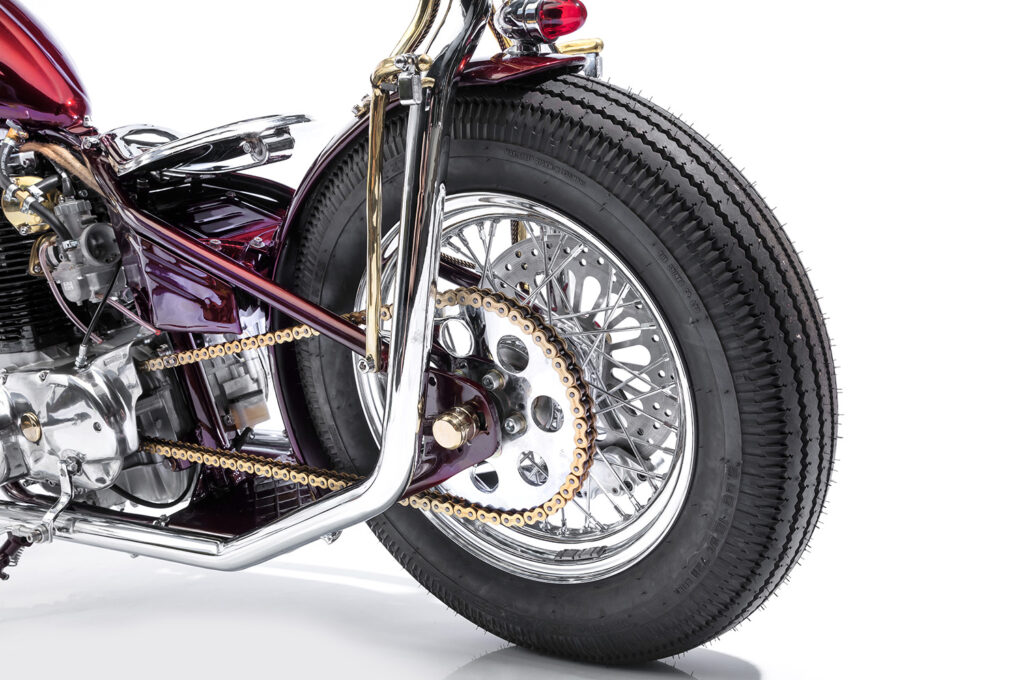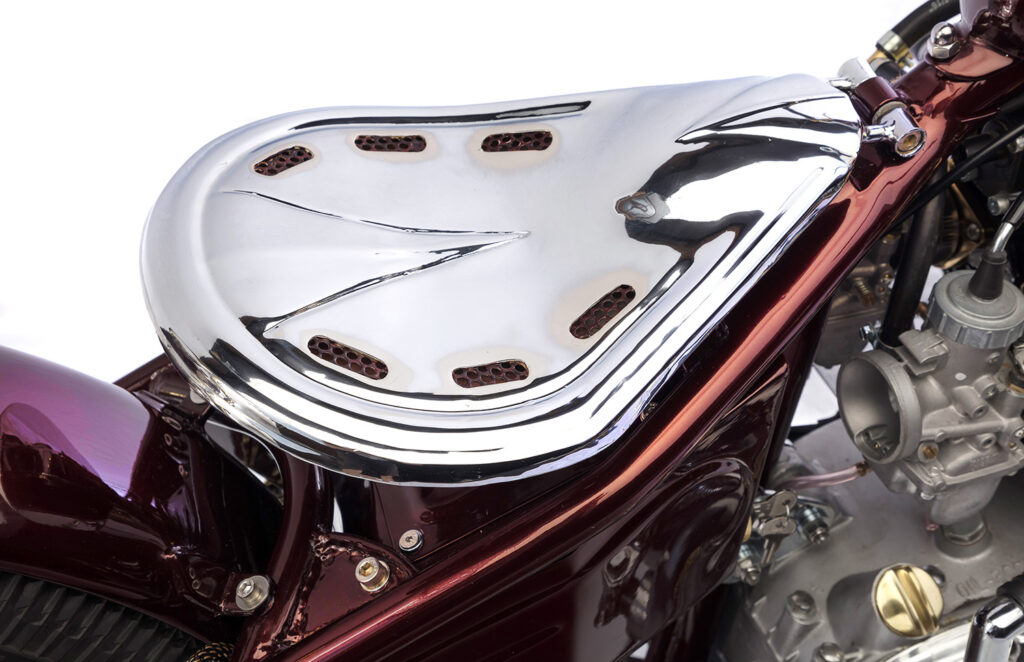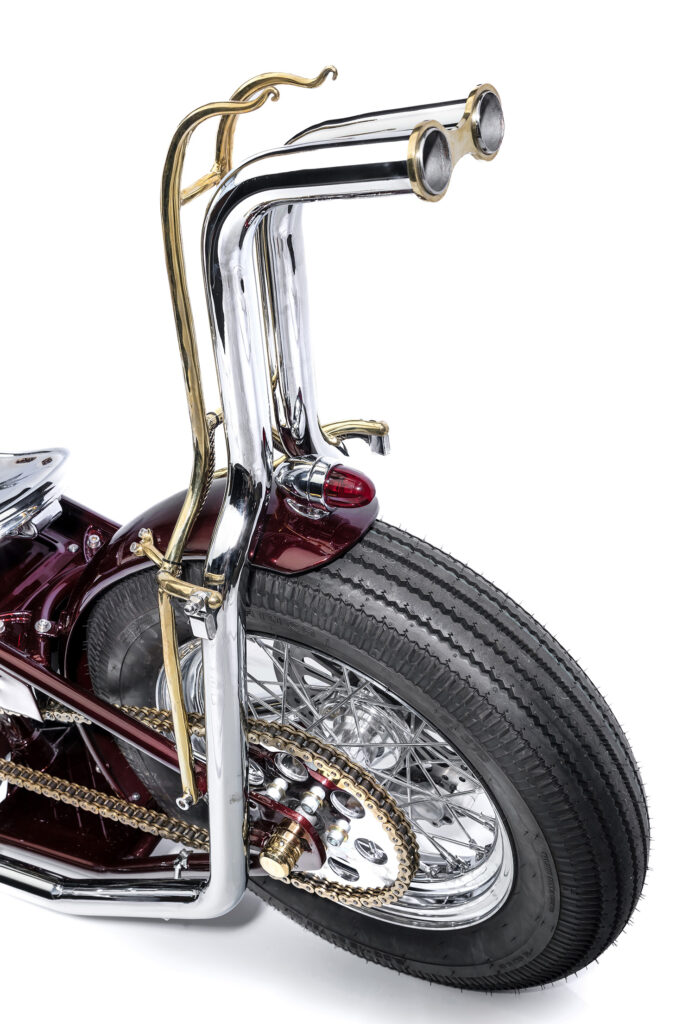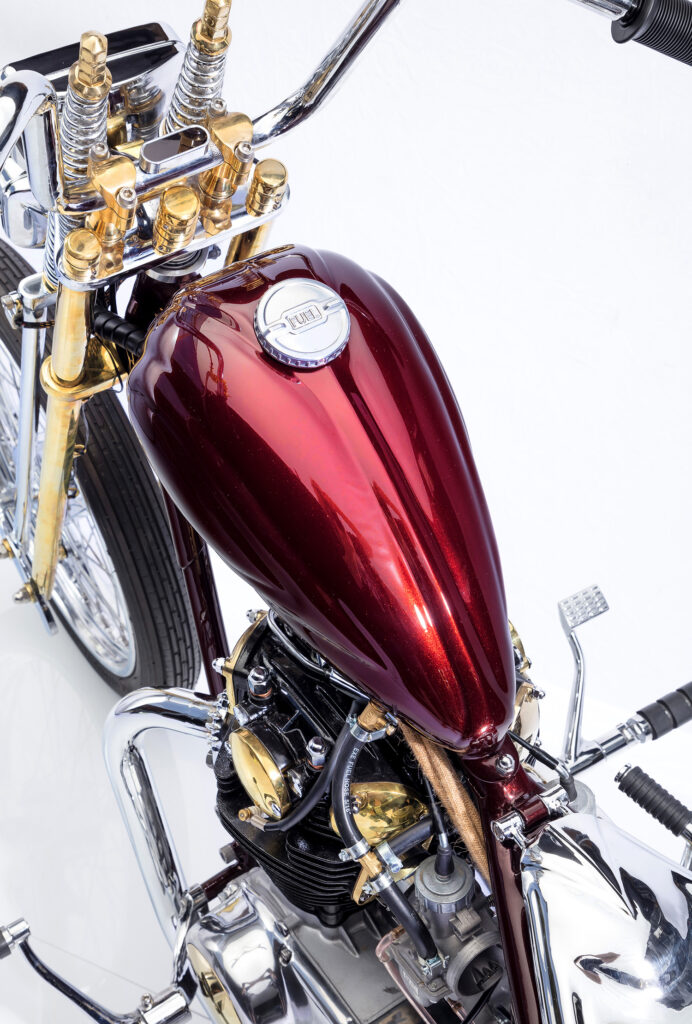
From the streets of Sturgis to AMD’s World Championship stage and the pages of Easy Rider magazine, legends have been born with bikes that have blown our minds. And one man who is building a serious name for himself is Newcastle, Australia’s Liam Butler. Bike mad since a boy and an auto electrician by trade, there is simply nothing he can’t do to a motorcycle. Bringing all his skills to the party he’s gone back to his roots, crafting one incredible custom at a time, and his latest masterpiece is this mouthwatering Yamaha XS650 by Butler’s Customs & Classics.

“My dad has always been obsessed with bikes and cars owning a million, as has my pop. Having this background I was always keen to start my own business working on bikes and cars,” Liam tells us. Apart from a stint working in the mines, Liam has been an Auto elec and vehicle builder all of his life, and the tale of Butler’s Customs has been a whirlwind journey over the past decade. What started in his home workshop would go on to be a full shop next to the restaurant and bar of Aussie music legend Chris Joannou of Silverchair. Amazing connections were made, super cool cars and bikes were built and the business would go on to outgrow two more big shops. But wanting to leave the distractions behind, Liam has returned to his home garage so the only thing that gets his attention is the bike before him.

Now being by appointment only, Liam knew exactly when to expect Rodney and his XS650. “The bike was brought to me in really bad condition to the point where the only good thing that was structurally sound was the engine having had a full rebuild,” Liam recalls. It was the sort of bike you see on eBay, listed as 90% complete when the truth is it’s more like 10% at best! Originally the bike came in just for a rewire, but when Rodney came in to check on the progress he asked Liam a fateful question, what if money was no object, what would you do? “I would make every inch of this bike from scratch and build you an award-winning Chopper!” Came the reply, and Rodney was in.

The build is frame up, every nut and bolt, but Liam doesn’t work in the usual chronological order, the exhaust was in fact one of the earliest pieces of the puzzle completed, so to make things easier we are going to run through the customisation from one area of the bike to the next. The Yammie had already been hard-tailed when it rolled into the garage, but when it was taken back to bare metal, it was clear the steel had seen better days, so it was cut back to the front down tubes and rebuilt from scratch. “I ordered a set of Harley Davidson wheels, 16″ rear and 21” front, and a rear brake caliper from Lowbrow Customs and then modified the frame and forks to take the wheels.”

The forks were already on the bike but to say they’ve been customised by Liam is a understatement – they’re still a springer – absolutely everything else from the CNC’d pieces to the brass has been changed. One thing Rodney had asked for was a rear disc, and with that Lowbrow caliper, Liam set to work making it fit. But like everything he does, the level of detail is incredible. A custom mount and support arm, a sheathed actuation rod running from the foot pedals to the master cylinder, all totally one-off and with flawless function. And then there are the themes that flow across the design, art deco inspired which all starts from the tank.

Liam took an off-the-shelf custom piece, and then went to town chopping and shaping new pieces of metal to create the stunning 3D shape. All of the traditional tools are used, the mallet and sandbag forming the shape, the stretcher pushing and pulling and the English wheel perfecting it all. The seat too is formed in a similar fashion, and to truly take in the details you have to commit yourself to pouring over the photos, and realising that each pass reveals another custom touch. Rodney’s saddle is mounted using a single leaf spring, which sets things up to flow perfectly like the rear fender. Another made from scratch part, it’s strong, purposeful and absolutely every square inch is perfect.

To attach it to the frame and help tie in that wild exhaust, Liam went to work on the Sissy bar, before enlisting the help of a friend who owns Exclusive Metal. “He is a master blacksmith and since I didn’t have a power hammer I got him to bend up the curves on the ends of the sissy bar then I did the rest, I really wanted to do something different with the fender and sissy bar mounts instead of having round bar mounts like most, I decided to go with an arrowhead shape after seeing something similar design-wise in an art deco table.” The arrowheads get the brass look treatment, which is applied across the bike in various ways, gold leaf for the engine, and more brass on the bars, which are handbuilt and feature an internal throttle.

But how about that exhaust, “It was always going to be a feature of this build as I wanted to do something I had not seen before and thought exhausts are always very similar and my thing is to make things as one off as possible!” Liam smiles. The headers run perfectly along the lines of the lower frame rails before the neat mandrel bends sweep up just before the axle, head skyward and then turn to the rear where they make a beautiful sound. A clever piece links the two near the tips, and more arrowhead mounts ensure she’s held in perfect place. Some more brass and rounded end pieces detail across the machine, before a mate Dan helped lay down the Candy Red paint.

Having applied the stunning hue, the final assembly allows Liam to ensure that everything is working flawlessly and given his trade, the wiring is totally hidden, minimalist and built to last. The bike was only freshly complete, but to nobody’s surprise, the Butler’s Custom XS won the top trophy at its first show. It’s yet another example of what an incredible builder Liam is, his skills going to all new heights without the distractions of a big lease, walk-in customers and the passing celebs. Rodney can’t help but beam with pride, and his decision to ask what if, has resulted in a chopper that looks right at home with some of the best that we’ve ever seen.


[ Butler’s Customs & Classics | Photography by Carl’s Garage ]
